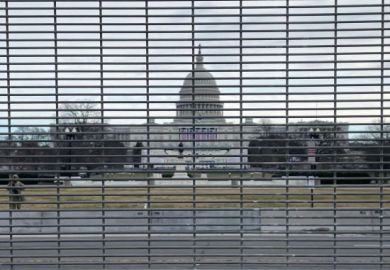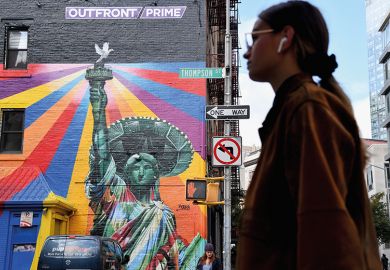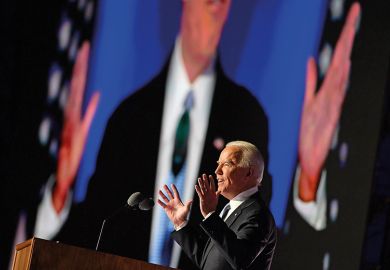US president Joe Biden has expanded his ongoing overhaul of Trump administration immigration policies, initiating several formal reassessments of federal rules with significant implications for higher education, including a limit on foreign nationals receiving government aid.
The idea, Mr Biden said in signing his latest batch of executive orders, was “a full review of the previous administration’s harmful and counterproductive immigration policies, basically across the board”.
The process will hopefully deepen the reversal in both language and spirit of the unwelcoming signals the Trump administration gave foreigners, said Miriam Feldblum, executive director of the Presidents’ Alliance on Higher Education and Immigration.
Mr Biden made particular note of including his campaign promise to examine the government’s public charge rule, which the Trump administration revised to make visas or permanent residency more difficult for foreigners who take advantage of various public benefits.
The Trump revisions to that rule specifically excluded education-related aid and grant money. But advocates said that distinction still left college students with anxieties over intent and real obstacles such as bans on receiving food-related assistance.
“A range of research has shown that the Trump administration public charge rule has a chilling effect on immigrant students and families, including those in higher education,” said Dr Feldblum, whose group represents some 500 presidents and chancellors of public and private US colleges and universities.
US colleges and universities typically host about 1 million international students a year, or about 5 per cent of their total enrolment. That share has important implications both for diversity of classroom perspectives, and for financial stability of institutions, given that foreign students pay higher than average tuition fees.
But under Trump, many stayed away. Their total number fell by 1.8 per cent in 2019-20, the first decline in decades outside the 9/11 attacks. The number of first-year foreign students then plummeted more than 40 per cent this past autumn semester during the coronavirus pandemic.
The highlight of Mr Biden’s immigration policy, announced just ahead of his inauguration last month, would give the 11 million undocumented immigrants now in the US an eight-year path to citizenship.
University leaders have offered support for that, but urged the Biden administration to prioritise issues of more immediate effect on international students, including increasing staffing at overseas visa-processing centres and applying more flexible standards for applications.
“International students and exchange visitors are facing severe economic hardship,” the Presidents’ Alliance on Higher Education and Immigration said this month in a letter to Mr Biden’s secretary of State, Antony Blinken.
Along with Mr Biden’s latest orders to rewrite immigration rules, US higher education got new help in two other areas that could encourage the enrolment of overseas students by helping them remain in the US after their academic studies.
In one case, a federal judge upheld the Trump administration’s expansion of the Optional Practical Training programme, which generally lets foreign graduates stay in the US for a year after college to work a job related to their field of study. The judge agreed that the administration was within its rights to triple that length to three years for graduates in science-related fields. The Biden administration has also given signs of support for Optional Practical Training.
In the other case, the Biden administration’s Department of Labor delayed until at least mid-May a planned requirement for wage hikes among foreigners with visas for highly-skilled jobs, avoiding what could have been a discouragement to private employers.
Register to continue
Why register?
- Registration is free and only takes a moment
- Once registered, you can read 3 articles a month
- Sign up for our newsletter
Subscribe
Or subscribe for unlimited access to:
- Unlimited access to news, views, insights & reviews
- Digital editions
- Digital access to THE’s university and college rankings analysis
Already registered or a current subscriber?








